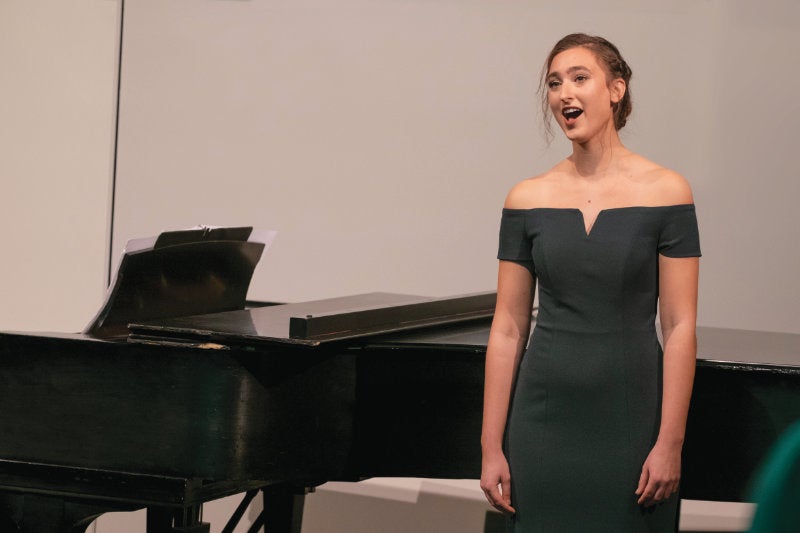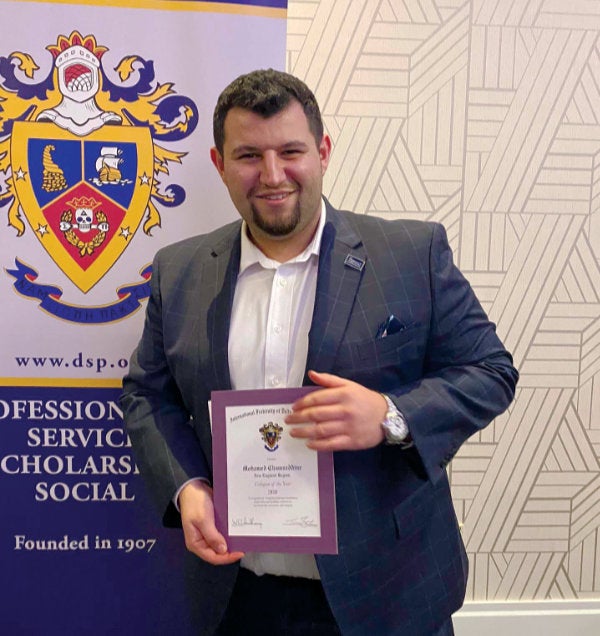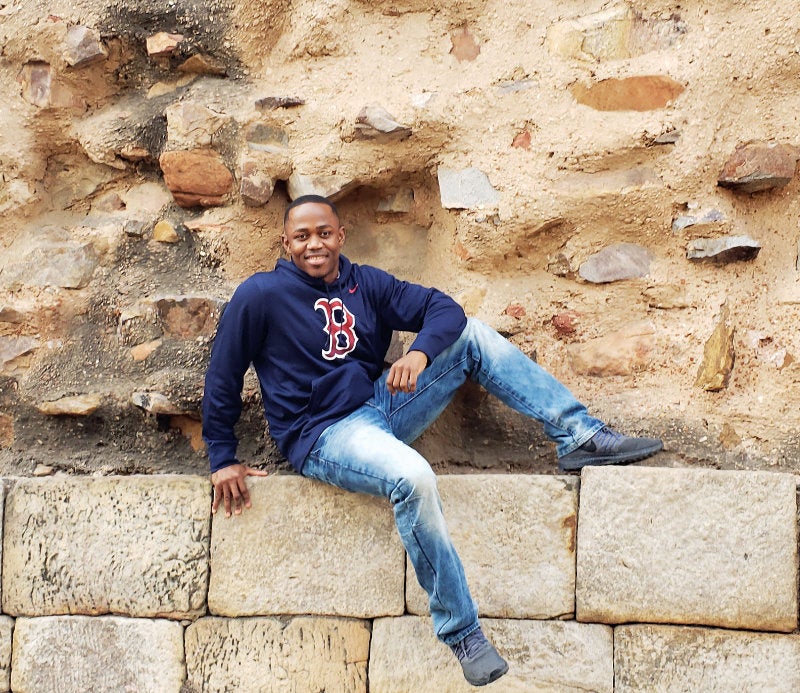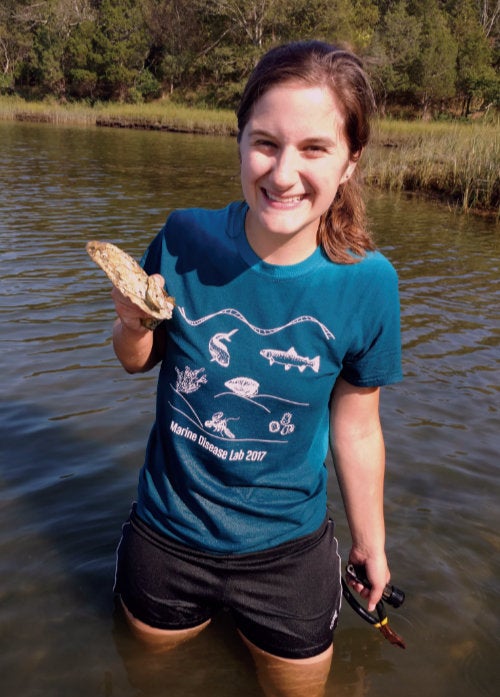COVID-19 changed everything. The Class of 2020—at URI, and everywhere—didn’t get the celebration they deserved. But they sure are worth celebrating. Meet four of our phenomenal 2020 grads.
Elise Felker ’20

Elise Felker believes music can heal.
A music education major, she wants to take her love for teaching music beyond the classroom and into social rehabilitation, where she believes it is needed most.
“You’re not just teaching people rhythms and notes, you have an opportunity to teach people how to become fully formed human beings,” Felker says. “When you experience music through any medium, you feel human emotions and connections.” She says music educators have a unique opportunity and social responsibility to help their students be better humans, not just teach them techniques.
Last summer, Felker interned at a nonprofit music school in South Africa that helps underprivileged teens become entrepreneurs in the music industry. And this year, she joined social justice choir Voices 21C, participating in community outreach with people recently released from prison. “As music teachers, we preach that music is for all,” she says. “We have to uphold that motto.”
—Edhaya Thennarasu ’21
Mohamed Chamseddine ’20
Mohamed Chamseddine didn’t plan for URI to change his life. But he’s sure it did.

Commuting from Middletown, R.I., it wasn’t until Chamseddine’s sophomore year, when he took a supply chain management class with College of Business senior lecturer Joe Estrella, that he declared his major.
From that moment on, things fell into place. He joined an academic fraternity and was selected for URI’s Business Student Advisory Council and Alumni Advisory Board. In September 2019, he attended a conference in Las Vegas where he met CEOs and CFOs from major U.S. companies.
Then Chamseddine suffered a tragic loss. His father died, and Chamseddine had to help run the family business. “I had to step up and help my mom—do the accounting and banking for the business,” he says. “I was balancing everything, and had to deal with school and loss.”
But he remained committed to school. “For him to become the student that he did, especially after going through all of that, shows a lot of fortitude,” Estrella says.
Chamseddine graduated with a job already lined up at the Naval Undersea Warfare Center in Newport.
—Ian Wiener ’20
Power Kanga ’20

Power Kanga was an athlete. Raised in Providence after immigrating to the United States from Liberia as a child, he came to URI on an athletic scholarship. The Talent Development scholar and aspiring engineer played football until an injury ended his college athletic career.
So Kanga dove into academics, learning how to pace himself and ask for help. He learned an important lesson from Professor Manbir Sodhi: “He taught me, if grades are your only motivation, you are not going to make it as an engineer,” says Kanga. With Sodhi, he traveled to India to study global sustainability in a J-Term class.
After joining the National Guard his sophomore year, Kanga joined URI’s Army Reserve Officer Training Corps (ROTC), graduated with a degree in industrial and systems engineering and was commissioned as a second lieutenant in the Army Reserves. His goal is to settle back in the Ocean State and start his own business. “What I really want to do is give back,” he says.
— Dawn Bergantino ’94
Rebecca Stevnick, Ph.D. ’20
When Rebecca Stevick began working on her Ph.D. in biological oceanography at URI’s Graduate School of Oceanography, she knew it would take at least four years to finish. So she decided to take on another project that she thought might take her equally long—an 18,000-piece 8-by-9-foot jigsaw puzzle.

Her research examined how environmental factors in Narragansett Bay affect oyster health and associated microbial communities. She also tested if probiotics might boost the microbial community in oyster hatcheries and which microbes interact best with the probiotic. She hopes that her research can be applied to efforts to clean estuaries and other waterways.
Stevick completed the puzzle—and the requirements for her Ph.D.—and began a postdoctoral fellowship at the Pasteur Institute in Paris in March. Although the pandemic closed her lab two weeks after she began her fellowship, she plans to spend the next two or three years there studying how microbes in zebrafish help prevent diseases or other pathogens from colonizing the fish.
—Todd McLeish
Read more about them and meet other members of the Class of 2020.
Photos: Marian Goldsmith; Courtesy of subjects
